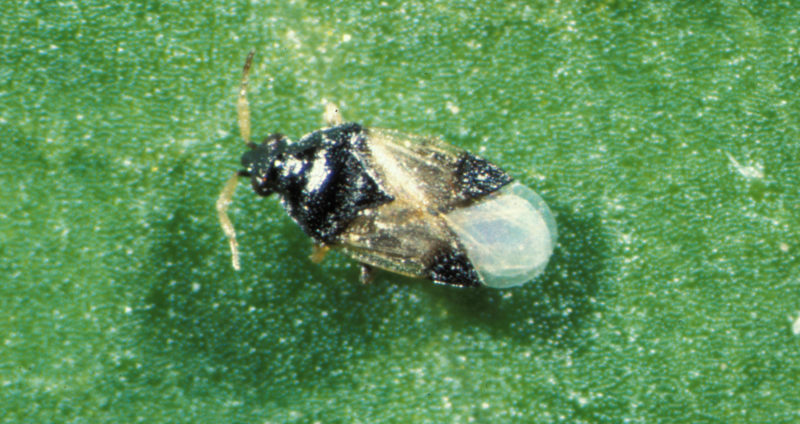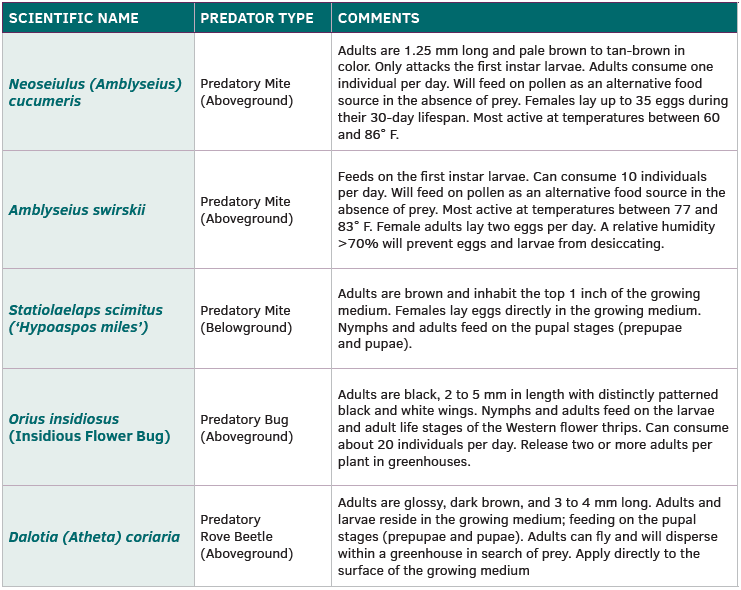
Biological Control Agents for Western Flower Thrips
Question: I am interested in implementing a biological control program against the Western flower thrips, Frankliniella occidentalis, in my greenhouse operation. Can you provide information on the commercially available biological control agents?
Answer: There is a general interest among greenhouse producers in the U.S. to implement biological control programs designed to reduce problems with Western flower thrips. One of the primary reasons is that certain populations of Western flower thrips in greenhouses have developed resistance to insecticides commonly used to suppress populations.
Biological control of Western flower thrips involves an aggressive augmentative program where biological control agents are released preventatively — almost before Western flower thrips are detected with follow-up releases made at weekly intervals based on information obtained from scouting crops. Scouting is critical in determining population trends of Western flower thrips throughout the growing season and helps in timing the release of biological control agents.
There are a number of commercially available biological control agents including: predatory mites, a predatory bug and a predatory rove beetle. Table 1 provides information on the commercially available biological control agents that can be released in greenhouse production systems to regulate Western flower thrips populations. Biological control agents must be released before Western flower thrips populations establish or reach outbreak proportions. It is important to understand that the biological control agents do not feed on all life stages (larvae, pupae and adults) of the Western flower thrips. The commercially available biological control agents and the Western flower thrips life stages that are susceptible to predation are presented in Figure 1.



 Video Library
Video Library 



















